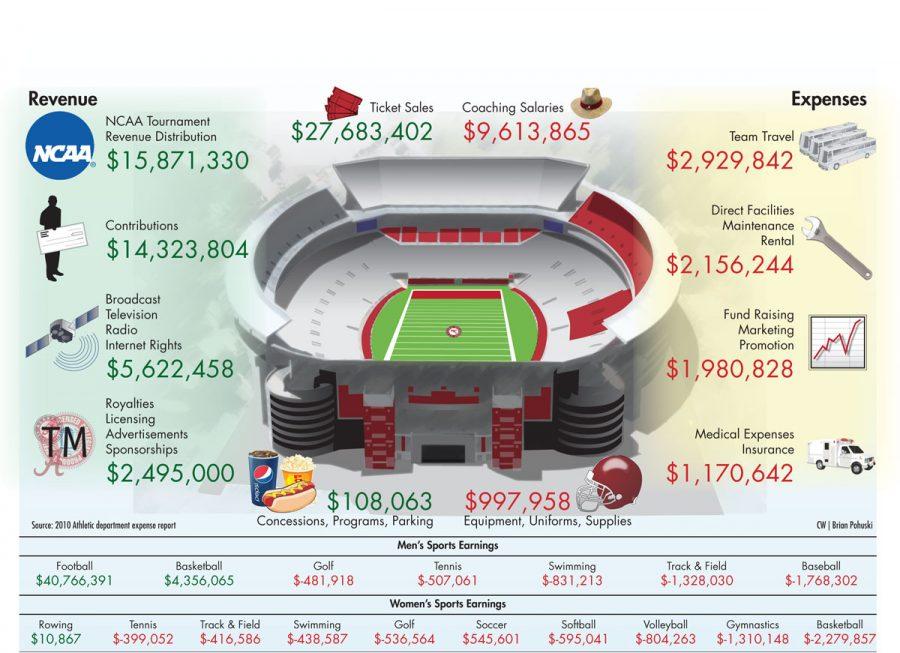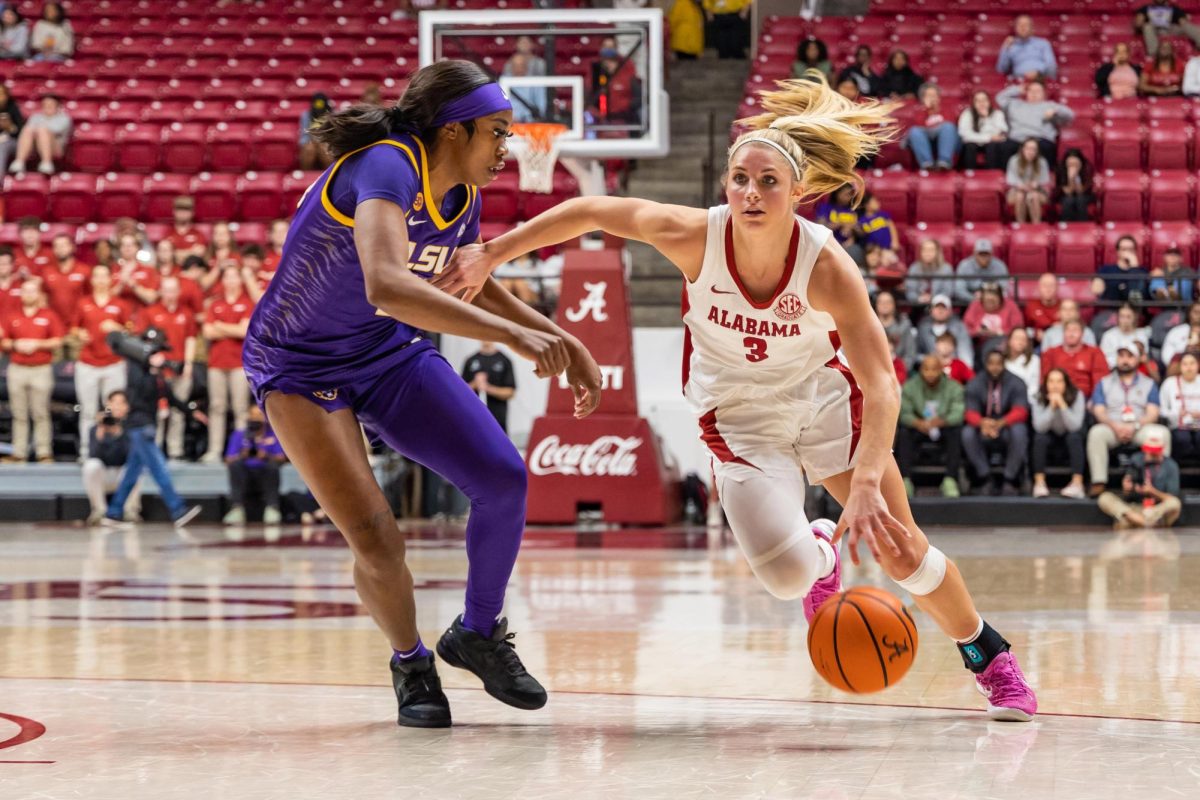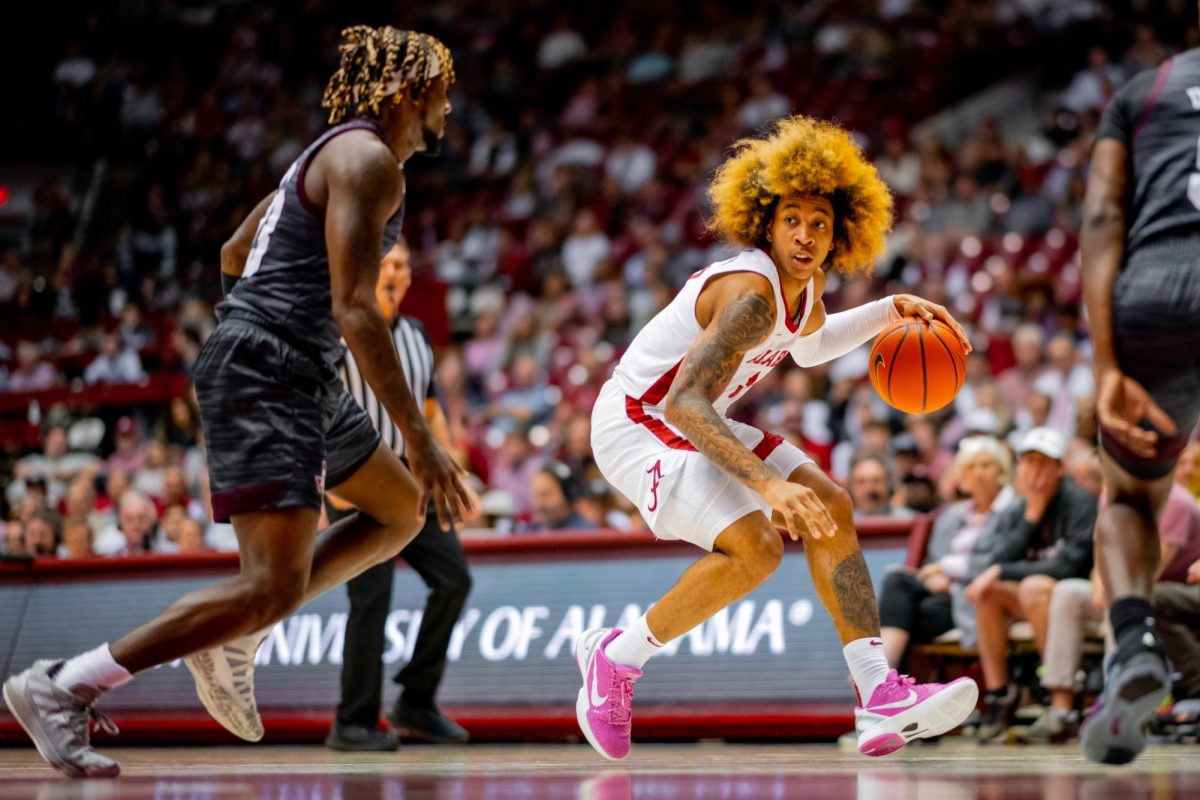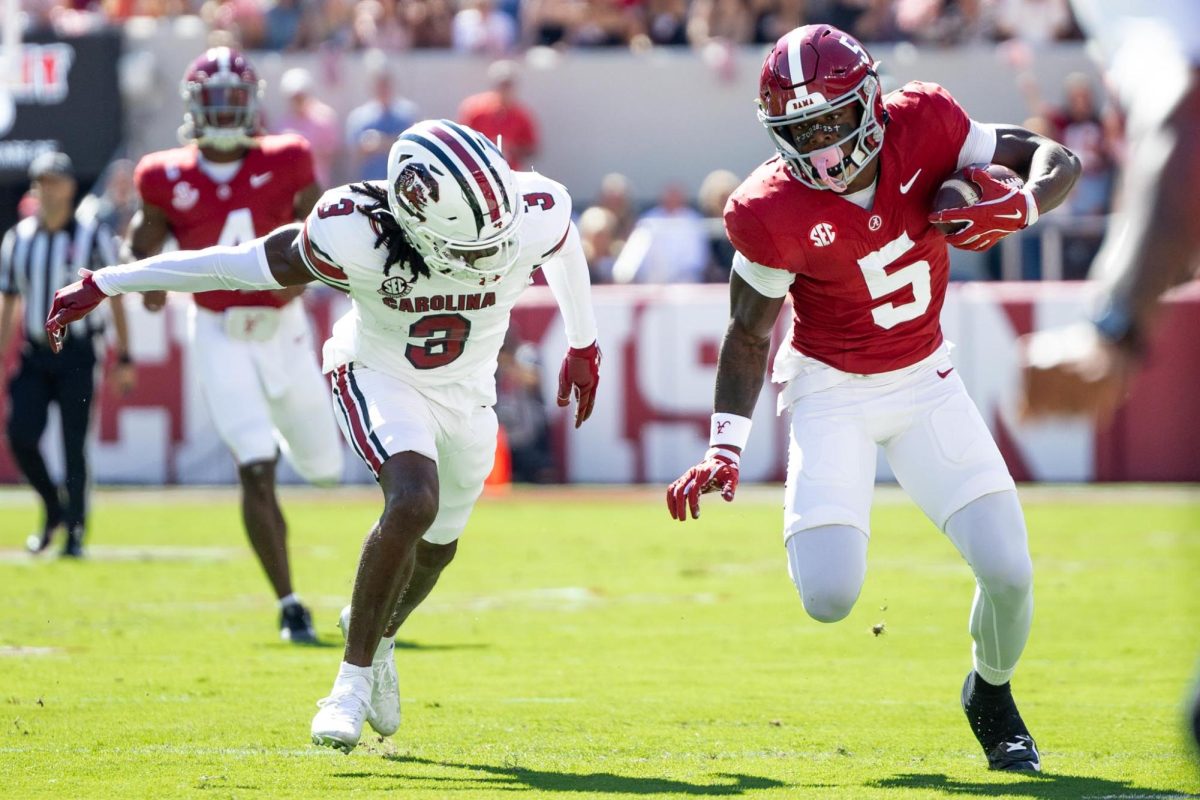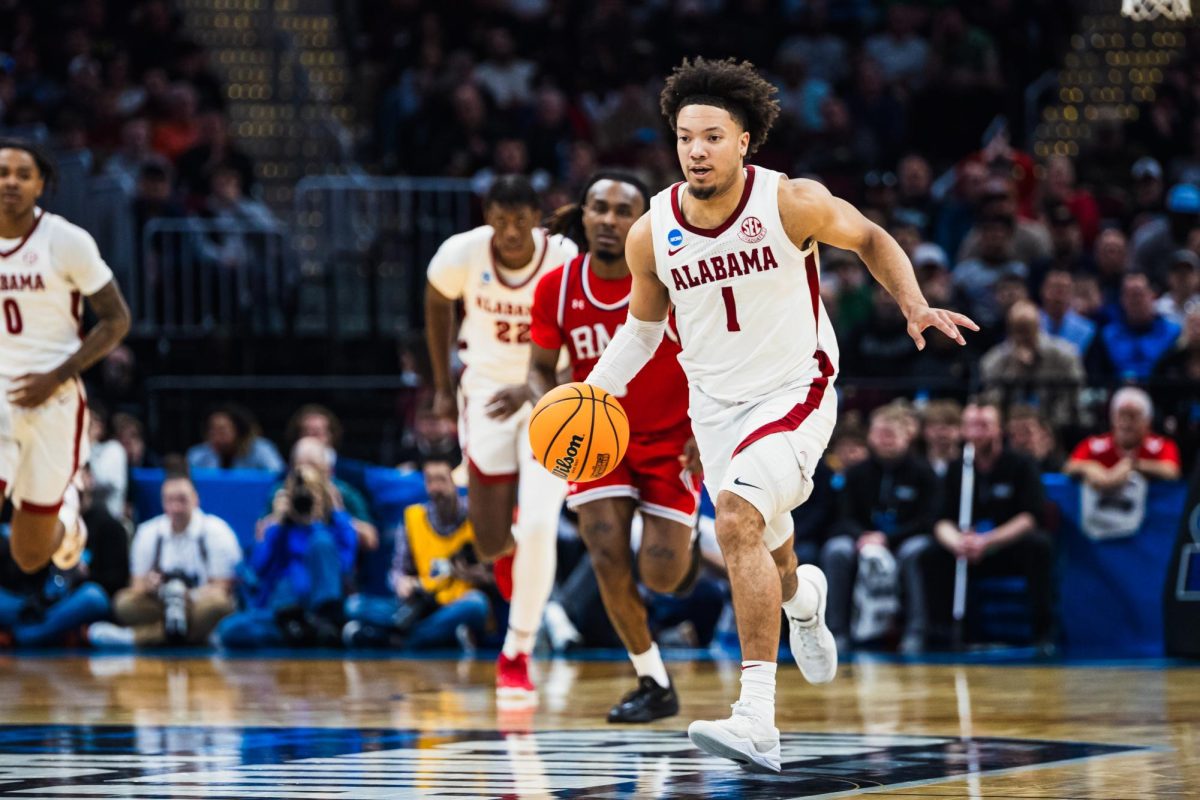College sports may appear to many to be a bustling business. However, a 2010 report by Transylvania University accounting professor Dan Fulks said it is quite the opposite. Out of the 1,200 plus schools who have athletic programs, only 14 schools earned a profit through their athletic programs in 2010.
Though the list of schools turning a profit has not been released, it has been determined that Alabama is one of the 14 schools.
Fulks suggested that most schools that do turn out a profit do it through their football program.
“With schools that are making money, more than likely there are two or three things going on,” Fulks said. “One is they are selling a lot of football tickets. In spite of this big CBS contract, it is still football that supports the other sports.”
Fulks said teams, such as Alabama, that can pack 100,000-seat stadiums every game, are at a definite advantage for making a profit. Because Alabama is able to pack its stadium so regularly, it enables the athletic department to throw great amounts of money at smaller schools to get them to play Alabama, which Fulks said the school almost certainly gets back from ticket sales of the game.
“You don’t only get six home games a year, but you can also throw half a million dollars at Louisiana Monroe and get another home game,” Folks said. “At forty or fifty dollars a ticket you get four or five million dollars.”
Another advantage the Crimson Tide has is the conference in which it plays. The Southeastern Conference—being a power conference—not only gives the Tide an opportunity to play in high-paying bowls, but the University also gets a percentage of the money even when it doesn’t make a big bowl game.
“You lose money in every other bowl,” Fulks said. “In BCS bowls the payout is $20 million or so and the payout is split up among all the conference members.”
Though it is true that teams do lose money on non-BCS bowls, Alabama is one team that typically breaks from that standard.
“The last time, I think it was Colorado, went to the Alamo Bowl they guaranteed 30,000 tickets and only sold about 5,000,” Fulks said. “They had to eat the other 25,000. People will go to follow Alabama, so Alabama will probably make money on bowl games but even they won’t make a lot. The payout for non-BCS bowl games just isn’t that much.”
Another key reason Alabama is successful is due to the amount of sports the university sponsors. Alabama currently sponsors 17 sports. For comparison Stanford sponsors 32 sports, nearly twice as many.
Taking into account that football and basketball are essentially the only two profitable sports, Alabama does not have to take care of as many sports which lose money. The football program at the university reported a $40,766,391 profit in 2010 while all other UA sports combined lost $7,875,289. Men’s Basketball was the only other UA sport that came away with a profit, as they earned $4,356,065.
The high income of football is what allows for the “non-revenue sports” to not only exist, but also thrive.
“I completely understand that the opportunity for us to compete for championships for 29 years has been because of the success of our football program,” Gymnastics head coach Sarah Patterson said.” “The funding it has allowed our program to have. We went from four scholarships to 10 scholarships to now our women’s team has 12 scholarships—how we’ve gone from traveling in a 15-passenger van to a bus to a plane.”
Alabama has also done a great job of finding some revenue from its “non-revenue” sports.
“We have found ways to create some revenue that substitute for lack of ticket revenue,” said Associate Athletics Director Doug Walker. “For instance, in gymnastics we are consistently able to fill the building even though we don’t have a large ticket sale – concessions, the Crimson Tide Sports Marketing, all of those factors. We have done a very responsible job in the past and plan to continue to as far as cultivating those different things.”
No matter how many factors Alabama has going in its favor; the number one thing that propels the Tide is its loyal fan base. Whether it is traveling to bowl games every year or purchasing season tickets and merchandise, Alabama’s fan base has earned a reputation as one of the most loyal in the nation.
“The oil that keeps this thing going is the fans,” Walker said. “Without them, we wouldn’t be able to do what we do. We are very fortunate to be where we are.”



